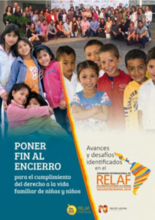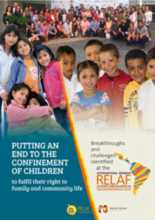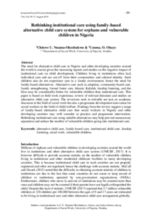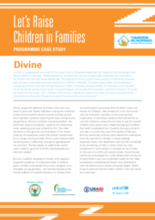Displaying 331 - 340 of 1028
The purpose of this article is to provide an introduction to social workers of child welfare reform by class action lawsuits and subsequent consent decrees in the United States.
This country care review includes the care related Concluding Observations adopted by the Committee on the Rights of the Child and the Committee on the Rights of Persons with Disabilities as part of the Committees' examinations of the periodic reports of India.
The aim of this module is to learn about children without parental care and the need for rights-based Integrated Alternative Childcare Centres.
This study examined stakeholder views on the key elements and challenges of youth participation in policy advocacy in the context of a US multi-state current and former foster care youth coalition.
Este informe de RELAF resume las presentaciones y discusiones del Seminario Internacional 2019 de RELAF.
Set in Central Region Ghana, using Country-Side Children’s Welfare Home (CCWH) as the main case study, this thesis investigates the underlying factors that are preventing families in the Bawjiase and surroundings from opening their homes and hearts to vulnerable children.
This report from RELAF summarizes the presentations and discussions from RELAF's 2019 International Seminar, "For the right to family and community life. Putting an end to the confinement of children deprived of parental care."
This paper is based on field work experience, review of relevant literature and studies on alternative child care system in Nigeria.
This package of materials documents successes and lessons learnt from implementation of the programme of care reform and family strengthening - called Tubarerere Mu Muryango (TMM), translated to Let’s Raise Children in Families - in Rwanda between 2012 and 2018.
This case study profiles the reintegration experiences of one child who has participated in the Tubarerere Mu Muryango (Let’s Raise Children in Families - TMM) programme in Rwanda.





